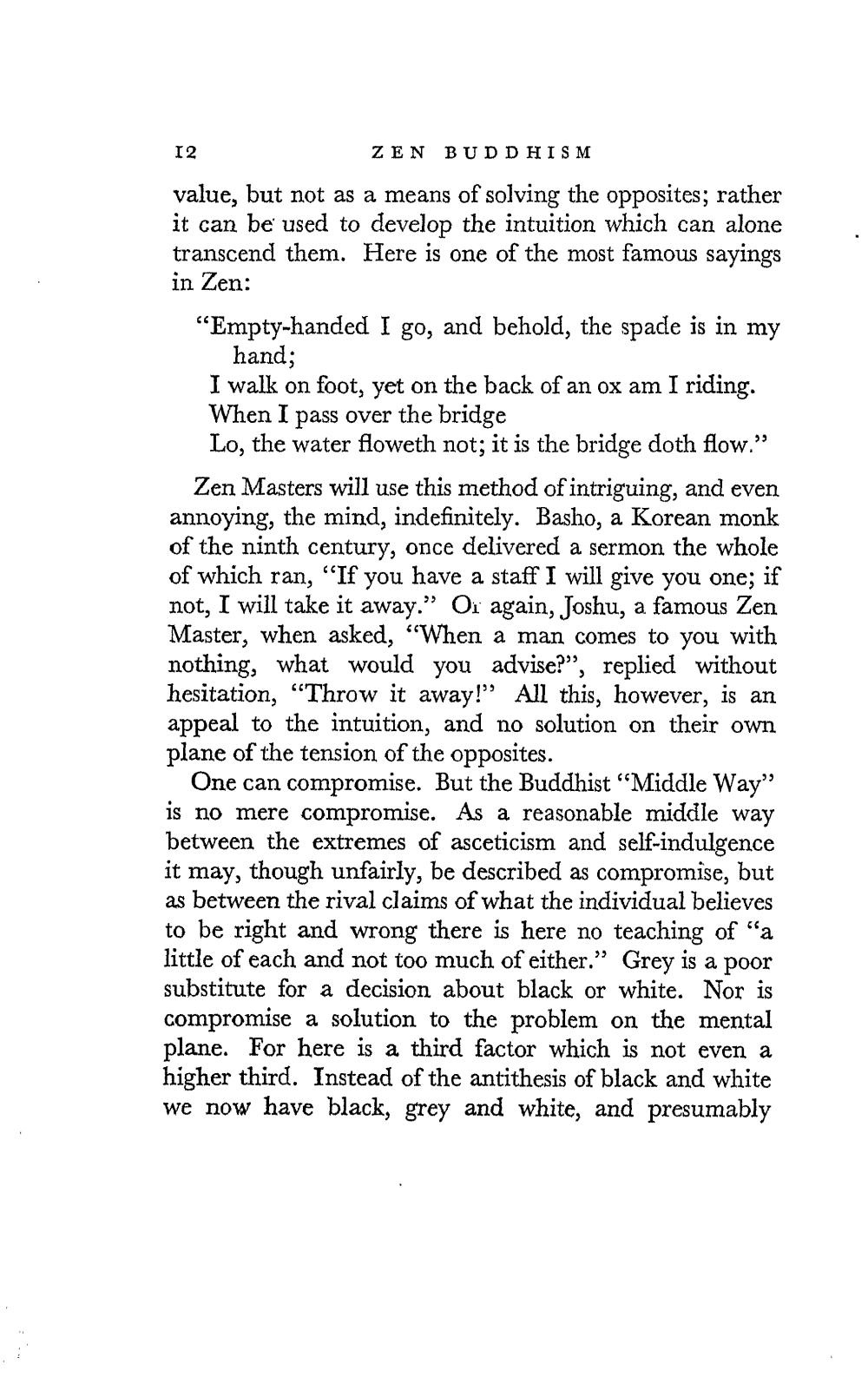________________
12
ZEN BUDDHISM
value, but not as a means of solving the opposites; rather it can be used to develop the intuition which can alone transcend them. Here is one of the most famous sayings in Zen: "Empty-handed I go, and behold, the spade is in my
hand; I walk on foot, yet on the back of an ox am I riding. When I pass over the bridge Lo, the water floweth not; it is the bridge doth flow." Zen Masters will use this method of intriguing, and even annoying, the mind, indefinitely. Basho, a Korean monk of the ninth century, once delivered a sermon the whole of which ran, "If you have a staff I will give you one; if not, I will take it away.” Oi again, Joshu, a famous Zen Master, when asked, "When a man comes to you with nothing, what would you advise?”, replied without hesitation, "Throw it away!" All this, however, is an appeal to the intuition, and no solution on their own plane of the tension of the opposites.
One can compromise. But the Buddhist "Middle Way" is no mere compromise. As a reasonable middle way between the extremes of asceticism and self-indulgence it may, though unfairly, be described as compromise, but as between the rival claims of what the individual believes to be right and wrong there is here no teaching of "a little of each and not too much of either." Grey is a poor substitute for a decision about black or white. Nor is compromise a solution to the problem on the mental plane. For here is a third factor which is not even a higher third. Instead of the antithesis of black and white we now have black, grey and white, and presumably




